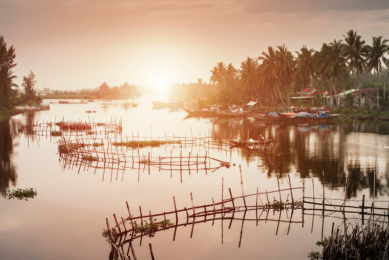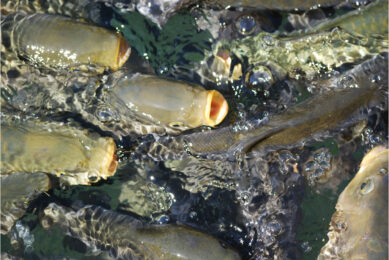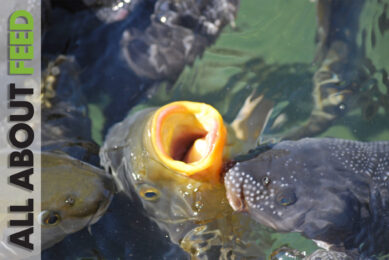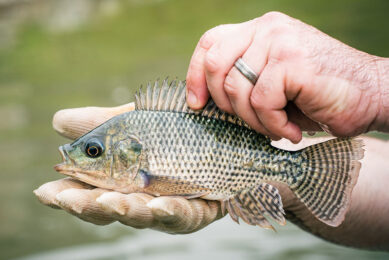“French aquaculture is different to Asia and Africa”
French aquaculture refuses to be compared to the polluting and poor farming standards of Asian and African counterparts.
Aquaculture ends just behind the nuclear industry if you look at the critical parts of the business, laments Pascal Le Gal, president of the Interprofessional Committee for Aquaculture (Cipa). "Yet there is nothing to be ashamed of in what we do."
By launching a charming operation in April with new labels and open houses in a dozen companies, the sector wants to counteract these stereotypes.
Firstly it is said that aquaculture contributes to plundering the seas by catching wild fish for use as feed for fattening. In France alone 45,000 tonnes of trout, salmon, sea bream, sea bass, turbot is consumed.
“It takes only 3 kg of prey fish to produce 1 kg of trout and salmon. To grow these at sea wild salmon will have consumed over 20 kg of fish," says Le Gal.
"It does not encourage more industrial fisheries, including fish that are only intended to produce meal and oil for animal feed,” said the president of Cipa. “On the other hand many raw materials are forbidden, such as blood meal, which is rich in protein."
Pollution of waters
Another misconception counteracted by Cipa is the assumed pollution of rivers and ponds where fish farms are located. In contrast, in France, professional farms are examples for the quality of river waters.
Plants are classified and controls are so tight that there has "not been a single business creation in 10 years," says Le Gal. Production is stagnant, so it should be developed to preserve the oceans.
The sector counts 450 to 500 sites and 2,500 direct employees (10,000 indirect). It attempts to develop a single specification for mass distribution, and establish standards for sustainability.
A fisheries specialists from the NGO WWF, Eric Bernard, confirms that in France "there have not been major environmental problems that have been seen elsewhere", such as the destruction of coastal areas by over-exploitation or pollution.
Bernard believes that some more improvement could be made by using more by-products form the food and feed industry to feed the fish.











